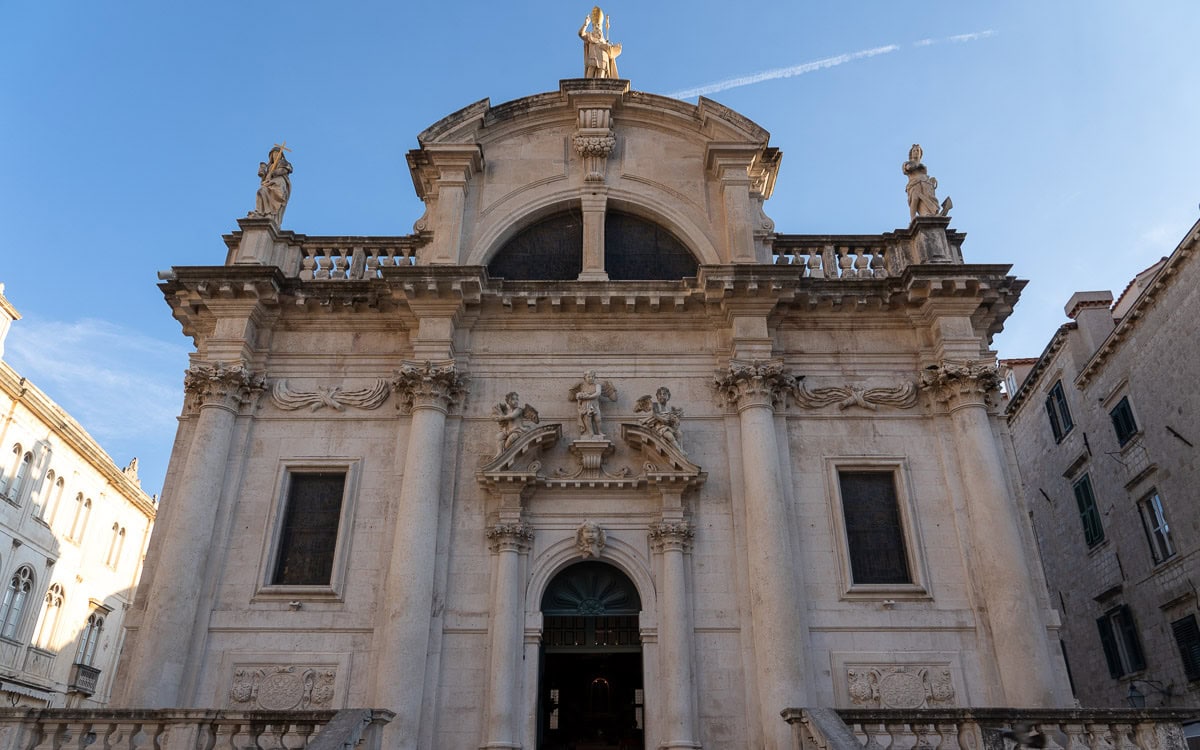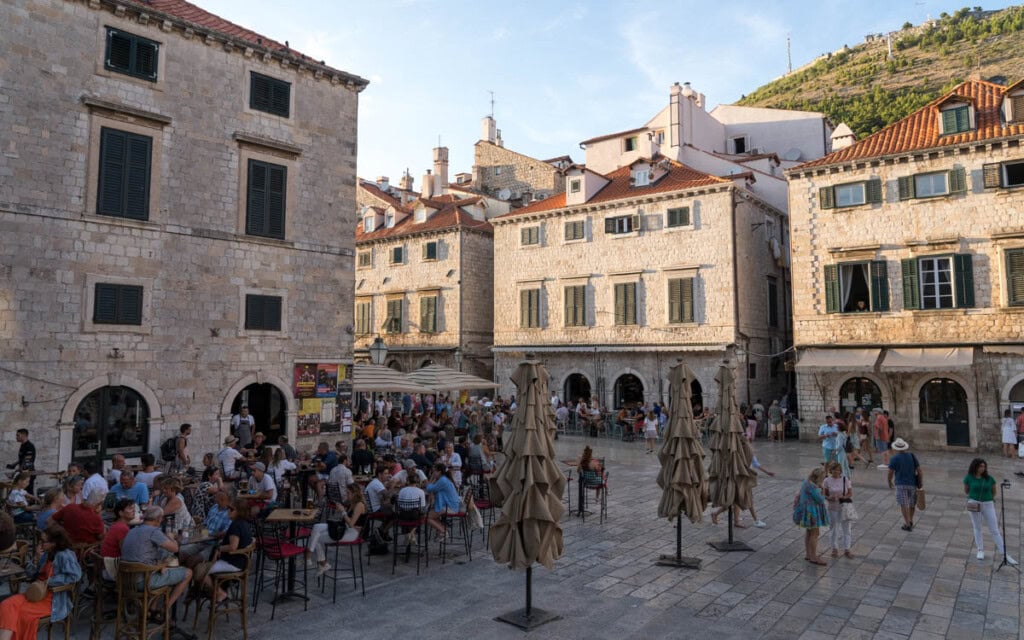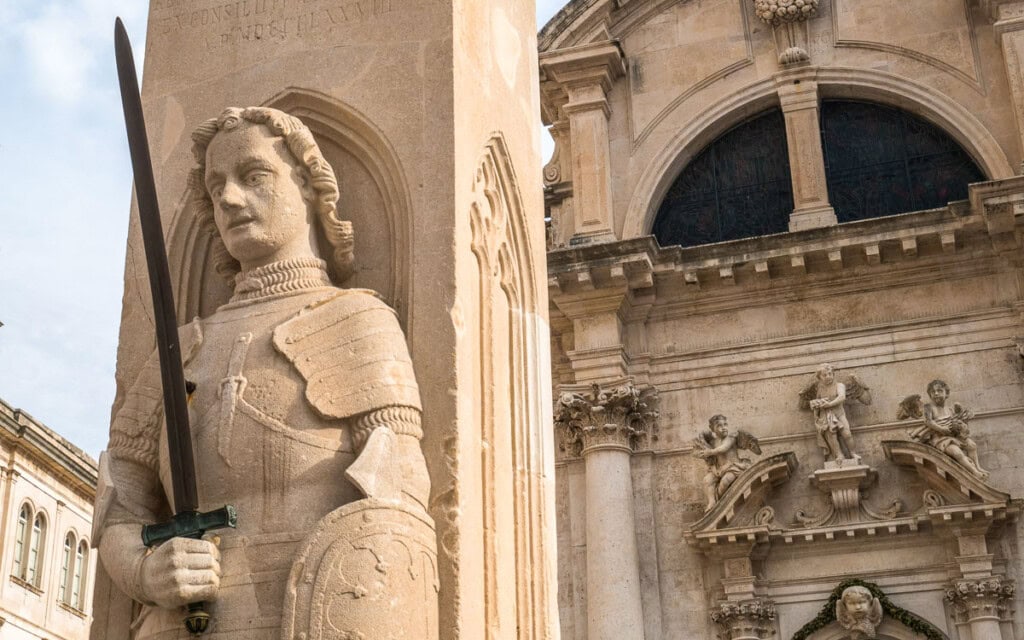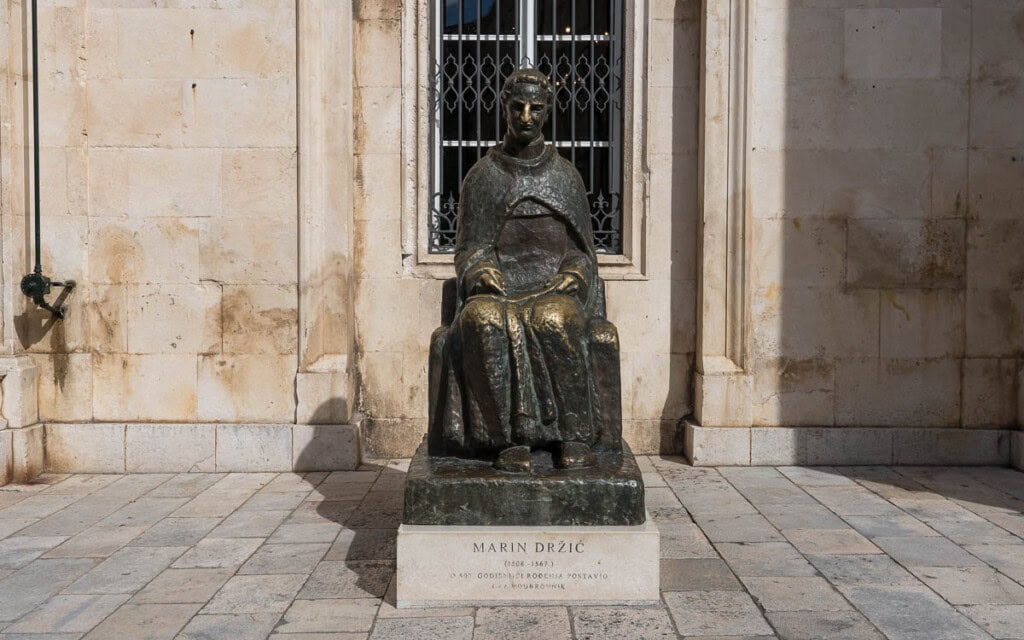
The Church of St. Blaise, located on the eastern end of Stradun, is one of the most iconic and famous landmarks in Dubrovnik, Croatia. The church, dedicated to Saint Blaise, the patron saint of Dubrovnik, dates back to the early 18th century.
A Romanesque church stood at this location from the 14th century until the middle of the 17th century. In 1667, a large earthquake destroyed much of Dubrovnik, including the church, leaving a void in the city’s religious and cultural landscape.
Only a silver statue of Saint Blaise holding a scale model of Dubrovnik before the earthquake survived the disaster.
In the early 18th century, government officials decided to rebuild the church. Between 1706 and 1714, Venetian architect Marino Gropelli designed and oversaw its construction. He designed the church in the popular Baroque style.
Multiple statues of angels and decorative elements adorn the façade. A statue of Saint Blaise watches over the church from the top. He holds a model of Dubrovnik, which symbolizes his role as protector of the city. Though ornate and elaborate, the church feels welcoming, with a grand staircase leading to the entrance.
The interior of the church is just as impressive as the exterior. It features an inscribed Greek cross within a single square nave, an apse bordered by two sacristies, and an oval dome at the center.
The main altar, the centerpiece, is richly decorated with intricate carvings and gilded details. It is also the location of the statue of Saint Blaise, which survived the earthquake.
The nave and side altars also contain various paintings, sculptures, and ornate decorations depicting different saints and religious scenes. In addition, the church houses many important relics of Saint Blaise.
Every year, on February 3rd, the Feast of Saint Blaise occurs with mass at the church, processions, and various cultural events in Old Town Dubrovnik.
In the square in front of the church, Luža Square, is Orlando’s Column.
Church of St. Blaise Information
Map
Nearby Sights
Luža Square

Luža Square, at the eastern end of Stradun, is one of Dubrovnik's busiest and most historically significant central squares. It has been an important meeting point for centuries and is home to some of the city's most significant landmarks, making it a must-visit spot in the Old Town. Since the Middle Ages, Luža Square has been a central meeting place for citizens of the Republic of Ragusa, present-day Dubrovnik.
Orlando's Column

In the center of Luža Square, on the eastern end of Stradun, is Orlando's Column, a historic stone monument dating back to 1418. Carved into the statue is a heroic medieval knight who defended Dubrovnik from invaders. In 1418, Bonino di Jacopo, an Italian master sculptor from Milan, built the column with the help of local sculptor Antun Dubrovčanin.
Small Onofrio's Fountain

Located at the eastern end of Stradun, off Luža Square, is the historic Small Onofrio's Fountain, an ornately decorated octagonal fountain. The small fountain, often overlooked by tourists, played an essential role in the history of Dubrovnik's water supply. Italian architect Onofrio della Cava designed and constructed the fountain between 1440 and 1442.
Statue of Marin Držić

At the eastern end of the Stradun, across the street from the Church of St. Blaise, is the bronze Statue of Marin Držić. At the bottom of the seated statue is a plaque that reads "MARIN DRŽIĆ (1508-1567) - On the occasion of the 500th anniversary of his birth - City of Dubrovnik."